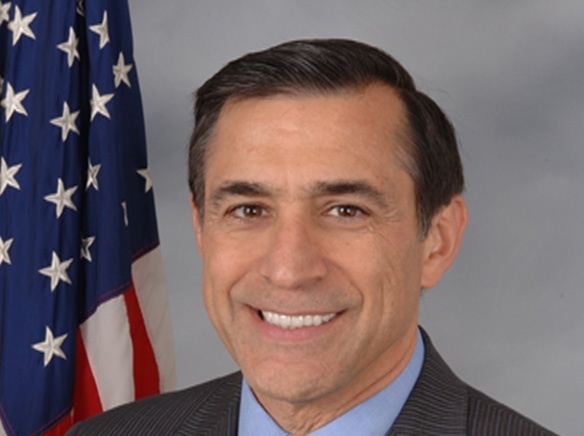Two local issues repeatedly reared up at the Coffee With Constituents meeting held by Dianne Jacob Friday at the Alpine library: concern over apparently increasing homeless numbers in San Diego and anger about rising electricity bills.
Jacob, a veteran supervisor who has overseen the largest and most rural area of San Diego since 1992 has reached her term limit and addressed how local representation might change as her final term in office comes to a close.
“The change of command is January 2021 so I’m not leaving yet but we’ve got an election coming up and I just want you to tune in because it’s not just this seat, District 2, but it’s also going to be the others and the county has shifted in the demographics regarding your party affiliation. If you look at the entire region, its shifted from a conservative region to more of a liberal one so that could change the priorities into the future,” Jacob warned.
“One of our biggest challenges is mental health issues that tie into the homeless. I make the statement: if we can create a better behavioral health system which includes mental illness along with drug and alcohol addiction then we can make a big dent into the homeless problem because a good percentage of people on the streets are mentally ill and or addicted to drugs or alcohol.”
Jacob referenced recent court cases which made it illegal to enforce anti-camping ordinances unless secure shelter space is provided for homeless individuals, then said that police can book an individual on 5150 during a crisis call but have to release those same individuals after 72 hours under current policy.
According to Jacob, recycling the same people through the county jail system means that it is, by default, the largest mental health care facility in the county as there is no long term care plan under the current legislation. She then passed along the frustration that she has heard from law enforcement and clinicians who are powerless to help many people without being able to give them the two clear options of either going to jail or submitting themselves for treatment.
“It can’t be just the PERT teams, which is law enforcement and a clinician responding to that emergency but then the follow-up to that so there is on-going care and treatment,” Jacob said.
According to the supervisor, the two neighborhoods in her district currently being targeted to decrease the homeless population are Lakeside and Spring Valley.
Jacob emphatically stated that the one thing she will not settle for is a temporary solution, and used that as a spring board to bring up the Accessory Dwelling Unit program that is being rolled out by the county; granny flats of less than 1200 square feet that can be built as income rentals using pre-approved plans on which the building permit has been waved. The supervisor acknowledged the project will not provide a full solution to the homeless crisis but said it is part of a multi-layered answer to provide permanent, affordable housing without being a handout or a drain on county funds.
Following the extensive discussion on homelessness, Jacobs listened to concerns voiced by resident Melinda Horton on the toilet-to-tap water program, property recording issues brought up by resident Marvin Hatch, and frustration expressed by Back Country Land Trust Program and Outreach Director Jon Green and Alpine Community Planning Group Chairman Travis Lyon on having special interest groups hijack plans for a new park being developed adjacent to Wright’s Field.
Green informed the room that he conducts the official homeless count for Alpine each year according to methodology required by the county of San Diego and submitted his observation that homeless individuals gravitate toward areas where bathrooms and convenience stores are easily accessible.
“I think we need to demand that the county has a plan so we don’t end up with a homeless population up there,” Green said.
Shifting the conversation from homelessness to rising energy rates, Jason suggested that San Diego Gas and Electric is not to be trusted.
“There’s 19 community choice programs in the state of California, now so we’re not the only ones… What I’m concerned about is SDG&E has stated recently that they want to get out of the electricity buying business. I don’t trust them… The PUC controls the rates both on electricity and also on the delivery… The poles, the lines, the substations, all of that: they get a guaranteed 10.2% return on that investment… The ultimate answer to this, in my opinion, and believe me I’m more of a small government type of person, is a municipal utility district. You take over the whole thing and every place you see public power it is a lot cheaper,” Jacob said.
Community leader Joseph Perricone threw out his opinion that SDG&E has made agreements in different communities behind closed doors:
“Trust me when I tell you SDG&E has its favors in every chamber in San Diego County,” said Perricone.
Jacob quickly added that Alpine is, of course, the exception.
Alpine Fire Chief Bill Paskle expressed concern about a rumor that San Diego county might begin charging non-profit groups permit fees for special events.
“The fourth of July parade, the chili cook-off, Vintage Alpine: they’d be taking money from kids in the community,” Paskle said.
Jacob met his concern with reassurance that she hasn’t been briefed on the possibility yet and that a vote is nowhere on the horizon.












